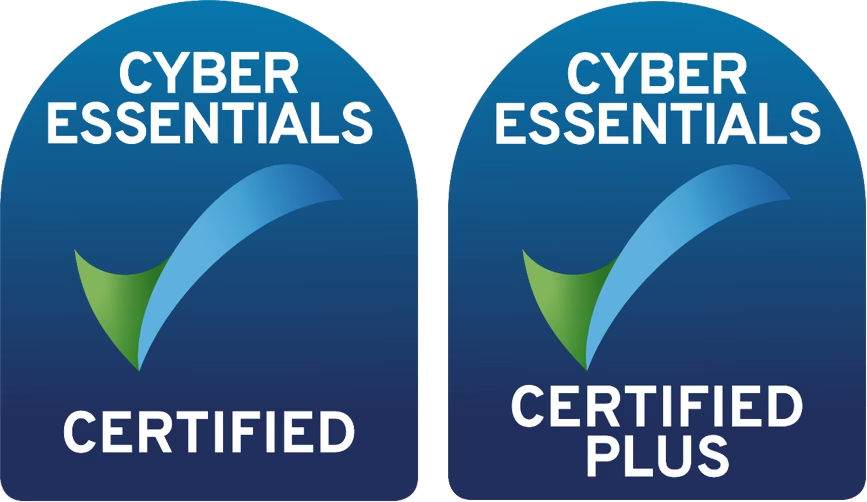Key Elements of Cyber Security Strategy for Small Businesses in 2025
Cyber threats are constantly evolving, and small businesses are increasingly becoming targets.
To help you stay ahead of these threats, we’ve updated our Cyber Security Services checklist for 2025.
This comprehensive guide will equip you with the tools necessary to address the most pressing security risks and protect your business.
Why Cybersecurity Matters for Small Businesses
Cybercriminals have significantly increased their focus on smaller organizations in recent years.
In 2024, 41% of small businesses fell victim to a cyberattack, a rise from 38% in 2023 and 22% in 2022.
Establishing a strong security posture is crucial to safeguarding your business data and reputation.
- 38% of UK micro and small businesses identified a cyber-attack in the last 12 months, with 82% of these businesses reporting phishing attempts, and 25% identifying a more sophisticated attack type such as a denial of service, malware or ransomware attack.
- The average cost of a data breach for UK small businesses is £16,100.
- 60% of small businesses that experience a data breach go out of business within six months.
- One in every 3,722 emails in the UK is a phishing attempt (20% higher than the global average)
- Every day, there are 65,000 attempts to hack SMEs, around 4,500 of which are successful.
- 33% of UK organisations say that they lost customers after a data breach.
- The average remediation cost of a successful ransomware attack to UK enterprises is £840,000.
Common 2025 Cyber Threats
Before diving into the checklist, it’s important to understand the most common cyber threats that small businesses face:
-
Ransomware: Malicious software that encrypts your data and demands payment for its release.
-
Security Misconfigurations and Unpatched Systems: Vulnerabilities that arise from improper system settings and outdated software.
-
Credential Stuffing: Automated attacks that use stolen credentials to gain unauthorized access.
-
Social Engineering: Manipulative tactics used to trick individuals into divulging confidential information.
-
Advanced Persistent Threats (APTs): Long-term attacks where hackers infiltrate a network and stay hidden to steal sensitive information or disrupt operations, such as state-sponsored hackers targeting government agencies.
-
IoT Exploits: Hackers exploit vulnerabilities in interconnected devices like smart home systems or industrial controls to disrupt services or steal data.
-
AI-Driven Attacks: Cybercriminals use artificial intelligence to create sophisticated and convincing phishing emails that are harder to detect.
-
Supply Chain Compromises: Hackers target suppliers or partners to gain access to larger organizations, potentially introducing malware through compromised software updates.
2025 Cybersecurity Checklist
Understand Your Environment: Take stock of your devices and systems to know where your valuable data resides. Prepare for a breach by planning for the worst-case scenario.
Train Employees: Educate your staff on cybersecurity best practices and the importance of vigilance.
Implement Security Defenses: Use firewalls, antivirus software, and intrusion detection systems to protect your network.
Maintain Good IT Security Hygiene: Regularly update software, apply patches, and audit your systems for vulnerabilities.
Prepare a Response Plan: Develop a plan to respond quickly to cyber incidents, including steps for containment, eradication, and recovery.
How Speedster IT Can Help
Speedster IT offers expert cybersecurity services, proactive monitoring, and tailored solutions to safeguard your business.
Our services include
- Managed detection and response,
- Dark web scanning and research
- VPN and security services,
- Penetration testing,
- Data breach detection,
- Advanced malware detection,
- Disaster recovery.
- Employee cyber security training
- Remote workers security
- Mobile device cyber security
So don’t wait until it’s too late – contact us now and take charge of your cybersecurity!
Contact us at 0204 511 9111 for more information or assistance.

With over 15 years at Speedster IT, I’ve built a career around helping businesses navigate the evolving world of technology. I publish all the content for the IT Support London Blog and Cyber Security Blog, where I share practical insights on infrastructure upgrades, cybersecurity trends, and smart IT strategies for growing companies.
